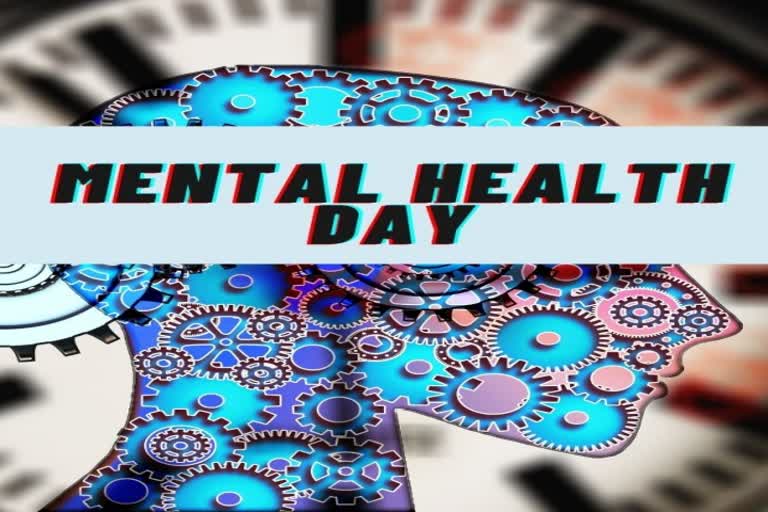Mental health and mental well-being have been discussed more than ever since the COVID-19 pandemic started. Every year, millions of people around the world are seen to be living with some or the other mental conditions and the statistics seem to have increased this year, given the fear and uncertainty that has surrounded us for a while now. This year, the World Mental Health Day is being celebrated on 10th October with the theme- ‘Mental Health For All: Greater Investment – Greater Access’.
Defining Mental Health!
Mental health does not only refer to the absence of mental disorders, but is something more than that. The World Health Organization (WHO) constitution states: “Health is a state of complete physical, mental and social well-being and not merely the absence of disease or infirmity. Mental health is a state of well-being in which an individual realizes his or her own abilities, can cope with the normal stresses of life, can work productively and is able to make a contribution to his or her community.
Mental health is fundamental to our collective and individual ability as humans to think, emote, interact with each other, earn a living and enjoy life. On this basis, the promotion, protection and restoration of mental health can be regarded as a vital concern of individuals, communities and societies throughout the world”.
What Are Mental Illness/Disorders?
WHO explains that there are many different mental disorders, with different presentations. They are generally characterized by a combination of abnormal thoughts, perceptions, emotions, behaviour and relationships with others.
Here are some of the conditions related to mental health as stated by the National Alliance on Mental Illness (NAMI):
- Anxiety disorders
- Attention Deficit Hyperactivity Disorder (ADHD)
- Bipolar Disorder
- Borderline Personality Disorder
- Depression
- Dissociative Disorders
- Eating Disorders
- Obsessive-Compulsive Disorder (OCD)
- Post-traumatic Stress Disorder (PTSD)
- Psychosis
- Schizoaffective Disorder
- Schizophrenia
Common Signs And Symptoms
Several mental disorders may show different symptoms. However, some of the signs are usually common and may be presented by anyone suffering from such a condition. NAMI states some of them, which are common to adults and adolescents:
- Excessive worrying or fear
- Feeling excessively sad or low
- Confused thinking or problems concentrating and learning
- Extreme mood changes, including uncontrollable “highs” or feelings of euphoria
- Prolonged or strong feelings of irritability or anger
- Avoiding friends and social activities
- Difficulties understanding or relating to other people
- Changes in sleeping habits or feeling tired and low energy
- Changes in eating habits such as increased hunger or lack of appetite
- Changes in sex drive
- Difficulty perceiving reality (delusions or hallucinations)
- Inability to perceive changes in one’s own feelings, behavior or personality
- Overuse of substances like alcohol or drugs
- Multiple physical ailments without obvious causes (such as headaches, stomach aches)
- Thinking about suicide
- Inability to carry out daily activities or handle daily problems and stress
- An intense fear of weight gain or concern with appearance
“Mental health conditions can also begin to develop in young children. Because they’re still learning how to identify and talk about thoughts and emotions, their most obvious symptoms are behavioral”. Symptoms may include:
- Changes in school performance
- Excessive worry or anxiety, for instance fighting to avoid bed or school
- Hyperactive behavior
- Frequent nightmares
- Frequent disobedience or aggression
- Frequent temper tantrums
Therefore, mental health is as important as physical health is and should not be neglected. Especially during these tough times, feelings of anxiety, stress, panic and depression are likely to arise. But, if you or your close ones are suffering from the aforementioned symptoms, seek expert help immediately. Many treatments, counselling and therapies are available for the same.
Promoting Mental Health
Keeping a check on a person’s mental health since childhood is important. WHO explains some of the ways in which mental health can be promoted:
- early childhood interventions
- support to children
- socio-economic empowerment of women
- social support for elderly populations
- Programmes targeted at vulnerable people, including minorities, indigenous people, migrants and people affected by conflicts and disasters
- Mental health promotional activities in schools
- Mental health interventions at work
- Housing policies
- Violence prevention programmes
- Community development programmes
- Poverty reduction and social protection for the poor;
- Anti-discrimination laws and campaigns;
- Promotion of the rights, opportunities and care of individuals with mental disorders.
Seeking a psychiatrist or psychologist is just like seeking a doctor for your physical health. Thus, mental health is important and people should understand that there is nothing to be embarrassed or ashamed of.
